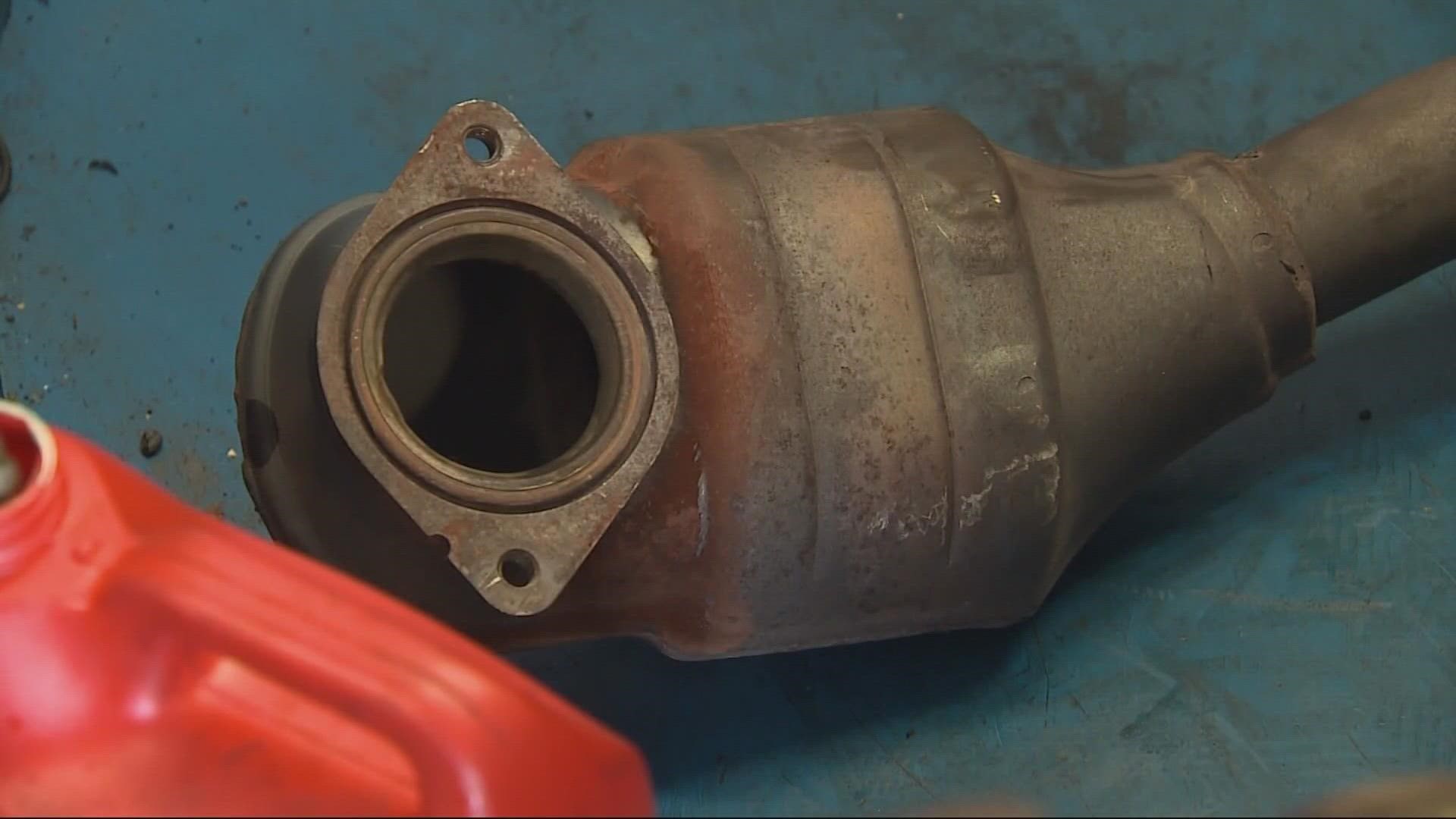PORTLAND, Ore. — Catalytic converters are the most expensive part of a vehicle's exhaust system. They contain several precious metals that can be sold for thousands of dollars by the ounce.
But even with a new state law to crack down on catalytic converter thefts in Oregon, it's still a huge problem not only on neighborhood streets — it's also happening at the airport.
Arthur Bermudez left for his weekend trip last Thursday and parked his car in the long-term parking lot at Portland International Airport (PDX).
"Got back Sunday night, walked over to my truck, turned it on ... and right when I heard the sound I knew they had taken the cat," said Bermudez.
His catalytic converter was gone, stolen while his car was parked at the airport.
RELATED: 'It's like the Wild West': Thefts, vandalism rising at Washington auto dealerships, owners say
The PDX airport ramped up security this fall specifically because of catalytic converter thefts. There are now more police, private security and undercover patrols at the airports parking lots. They've also added signs and more lighting and even closed an employee exit to deter people from sneaking in.
Despite all those efforts, 38 catalytic converters have been stolen so far this year. That's compared to just 7 during the same time period last year.
This isn't just a Portland problem; State Farm Insurance reports catalytic converter theft has increased 1,171% nationwide since 2019. State Farm data ranks Oregon as 6th in the nation for auto parts theft.
"In 2020, the claims went from 350 claims to 1,300 claims in 2021," said Gina Wilken with State Farm. "Make sure that your coverage matches what you need it to cover most, comprehensive coverage will cover a catalytic converter theft, but also have that conversation with your agent."
As for Bermudez, he said this ordeal has prepared him for his next weekend trip out of PDX.
"I learned a lesson — it's better to catch a ride-share or have somebody drop you off," he said.
The new state law started this year stops scrap metal businesses, from being able to buy catalytic converters from anyone but commercial sellers or the owner of the car it came from.

